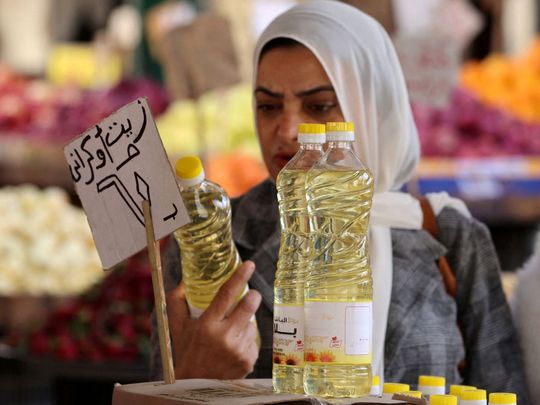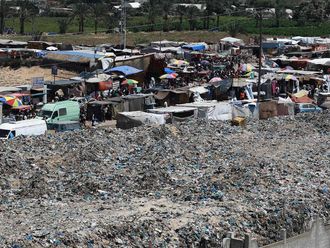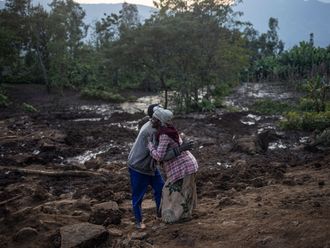
CAIRO: The European Union announced a €7.4 billion ($8.06 billion) funding package and an upgraded relationship with Egypt, part of a push to stem migrant flows to Europe.
The agreement, which lifts the European Union’s relationship with Egypt to a “strategic partnership”, was announced as a delegation of leaders visited Cairo.
It is designed to boost cooperation in areas including renewable energy, trade, and security while delivering grants, loans and other funding over the next three years to support Egypt’s faltering economy.
The proposed funding includes €5 billion euros in concessional loans and €1.8 billion euros of investments, according to a summary of the plan published by the EU.
An additional €600 million would be provided in grants, including €200 million for managing migration issues.
European governments have long been worried about the risk of instability in Egypt, a country of 106 million people that has been struggling to raise foreign currency and where economic adversity has pushed increasing numbers to migrate in recent years.
Inflation has been running close to record highs and many Egyptians say they struggle to get by.
Over the past month, however, the financial pressure on the government has eased as Egypt has struck a record deal for UAE investment, expanded its loan programme with the IMF, and sharply devalued its currency.
Diplomats say Egypt’s strategic importance has been underscored by the war in Gaza, where Egypt is trying to mediate between Israel and Hamas and increase deliveries of humanitarian aid; and by the conflict in neighbouring Sudan, which has created the world’s biggest displacement crisis.
European Commission President Ursula von der Leyen headed a delegation meeting President Abdul Fattah Al Sissi in Cairo on Sunday that also includes the Italian, Greek, Austrian and Belgian prime ministers, and the Cypriot president.
Egypt’s finance minister has said the government has lined up a total of $20 billion in multilateral support after increasing its loan and economic reform programme with the IMF.
Most of the EU funding is newly allocated and it was drawn up in close cooperation with the IMF, with €1 billion of the “macro-financial” loan funding to be delivered this year, a senior EU Commission official said.
The remaining €4 billion will be subject to approval by the European parliament, the official added.
CROSSINGS VIA LIBYA
Egyptian officials say Egypt deserves recognition for largely shutting off irregular migration from its north coast since 2016 although there has been a surge in Egyptians trying to cross to Europe via Libya, and the European Union is already providing support aimed at reducing those flows.
In recent months, the Greek islands of Crete and Gavdos have seen a steep rise in migrant arrivals - mostly from Egypt, Bangladesh and Pakistan - raising concern about a new Mediterranean smuggling route.










_resources1_16a30b3523c_small.jpg)

